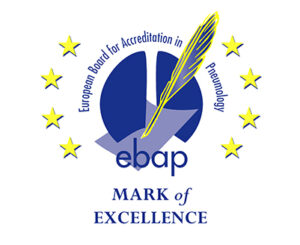Overview
Sleep disorders represent a common and wide spectrum of diseases affecting over one billion people worldwide of all ages, genders, and ethnicities. Among these, obstructive sleep apnoea (OSA) is the most common and prevalent disorder affecting more than 20% of the middle-aged population, although wide age, sex, and ethnic variations are reported globally. OSA can be either completely asymptomatic, or associated with symptoms such as intermittent snoring, unrefreshing sleep, and daytime sleepiness. OSA is an important public health issue because of its association with the development or accelerated progression of cardiovascular events, metabolic diseases, cognitive impairment, reduced job performance, impaired quality of life and traffic accidents.
This research seminar aims to present the latest advances in the study of the deleterious effect of intermittent hypoxia and sleep fragmentation in cell cultures and animal models of sleep apnea. Moreover, we will discuss the other indicators of OSA severity that would help stratifying the risk of OSA-associated comorbidities and contribute to the personalized management of these patients. In addition, we will discuss the potential offered by artificial intelligence algorithms for the risk stratification associated with OSA.
Finally, the contribution of other indicators of OSA severity, such as OMICS will be discussed as a potential powerful source of information which could contribute to both risk stratification of OSA, and personalised management of OSA.
Objectives
The overall aim of this Seminar is to provide a forum for the presentation, discussion, and formation in state of the art research on personalised management of OSA. Specifically, the objectives are:
- To provide an update in basic research in animal and cellular models of the deleterious effects of OSA.
- Discuss the contribution of different signals associated with OSA, OMICS data and artificial intelligence systems to improve the risk stratification in OSA
- Analyse the most recent data on OSA endotypes and their different vulnerability to OSA comorbidities.
- Establish a roadmap for the design of new interventional studies to evaluate the effect of OSA treatment
- Expose the usefulness of analysis tools based on real-world data.
The Seminar is focused on bringing together young and more experienced investigators in the field to stimulate the translational research activities in an inter-generational network.
Outcomes
- A seminar report will be submitted to an ERS Journal.
- An opportunity to network with academia, policymakers, and pharmaceutical industry representatives.
- A session at the ERS International Congress. A specific hot topic session in the next ERS congress after this research seminar.
- In the forum that will be created in this research seminar, participants will discuss the main open questions in translational research for the study of the effects of OSA and improvement of the personalized management of this disease.
- Create a European Network, under the auspices of the ERS, to prepare a proposal for ERS Clinical Research Collaborations.
- Application for an ERS task force and grant: ERS Assembly Task Force and potential new cooperative grants proposals.
This research seminar will take place in Lisbon, Portugal.
The venue for the meeting is:
DoubleTree by Hilton Lisbon – Fontana Park
R. Eng. Vieira da Silva 2
1050-105 Lisboa
Portugal
This event has been accredited with the Mark of Excellence by the European Board for Accreditation in Pneumology (EBAP) with 11.5 CME credits.
The number of credits that you will receive corresponds to your attendance during the event. Please note that you need to sign the register of attendance each day to ensure that you receive the correct amount of CME credits.

Terms and conditions
Registering for someone else? Contact registration@ersnet.org







